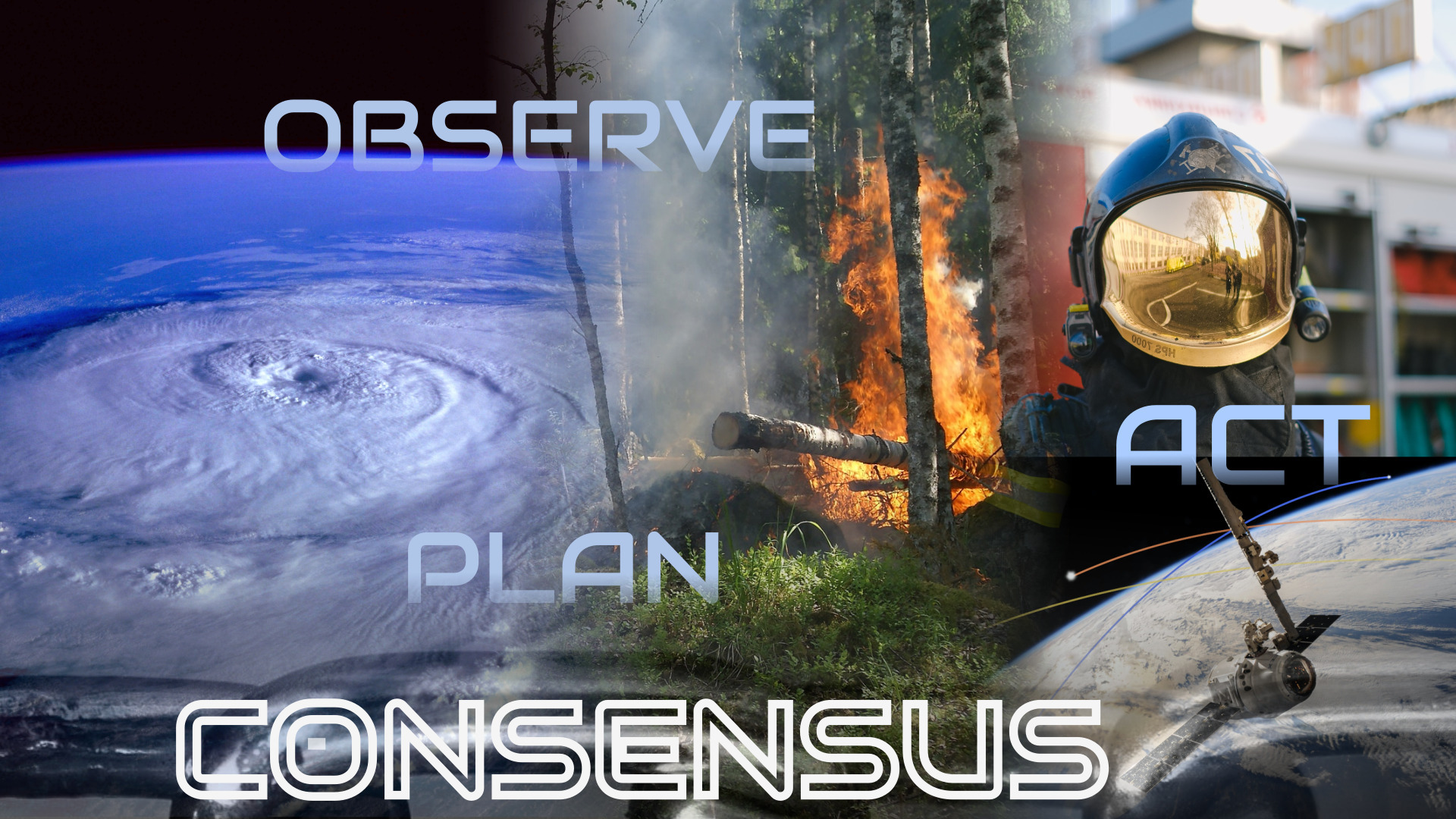confusion and augment trust in key decision making information. Space DAO acts as a market place for space insights offering full governance power to users as well as data and services providers. In order to provide a neutral, fair and effective exchange of trustable data insights, a decentralised autonomous organisation of space insights has been prototyped; Space DAO.
Space DAO stands for a Decentralised Autonomous Orbit Organisation and provides autonomy in decision processes output by the ecosystem. Automation of the decision process via a neutral and scalable system has strong gains in decision making. Current applications for the Space DAO are Space Traffic Management (STM) and Disaster Response Management (DRM).
https://nebula.esa.int/content/blockchain-ecosystem-autonomous-consensus-mechanism-federated-satellite-networks-%E2%80%93-space-dao
On the ground, regular cloud infrastructures are optimized to adapt to computational, storage and data transfer resources demands automatically. Adding cognitive functions means bringing the system to a higher level of autonomy and awareness with the challenge of agreeing on decisions among multiple agents (machines and humans) and detecting needs in resources to plan actions automatically. As example, during a disaster response, short-term decisions must be quickly planned, broadcasted and validated, in synchronization with ground systems and a network of emergency response satellites. Another example is Space Traffic Management (STM) and collision avoidance manoeuvres. Democratization of edge computing are moving part of these autonomous decisions to happen on board. Space assets are constantly augmenting their perception, cognition and action capabilities. While datasets grow and decisions complexity augment, less efforts have been made in finding suitable consensus mechanisms and ecosystem to achieve the necessary agreement within a satellite network governed by multiple authorities with different planning tools [1].
The purpose of this project is to investigate how information providers and data processing contributors can interact together using blockchain consensus mechanisms [2], and how this can be adapted to a federated network Earth-orbiting satellites. All actors interacting within a decentralized autonomous organization, with no required trusted central authority [3].
Two important scenarios are foreseen for this project: 1. Autonomous space traffic management; 2. Autonomous spacecraft resource management, for example, in the scope of the International Charter Space and Major Disasters. The findings will help pave the way to a new kind of ecosystem for multi-constellation (multi-stakeholders) spacecraft as a service (MCSaaS) for in orbit as well as, by extension, for multi-asset deep space missions.

